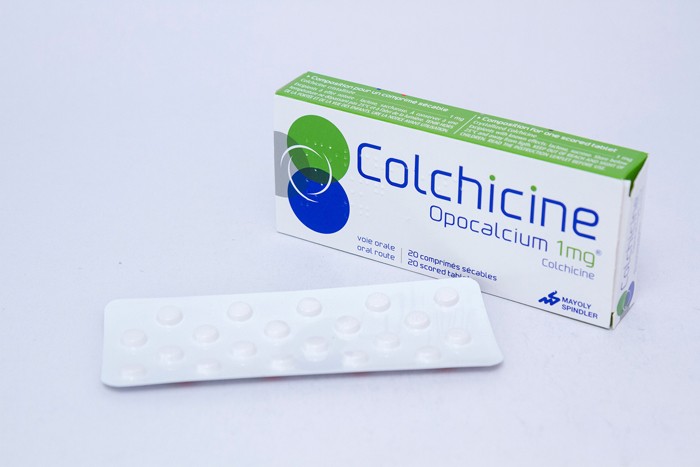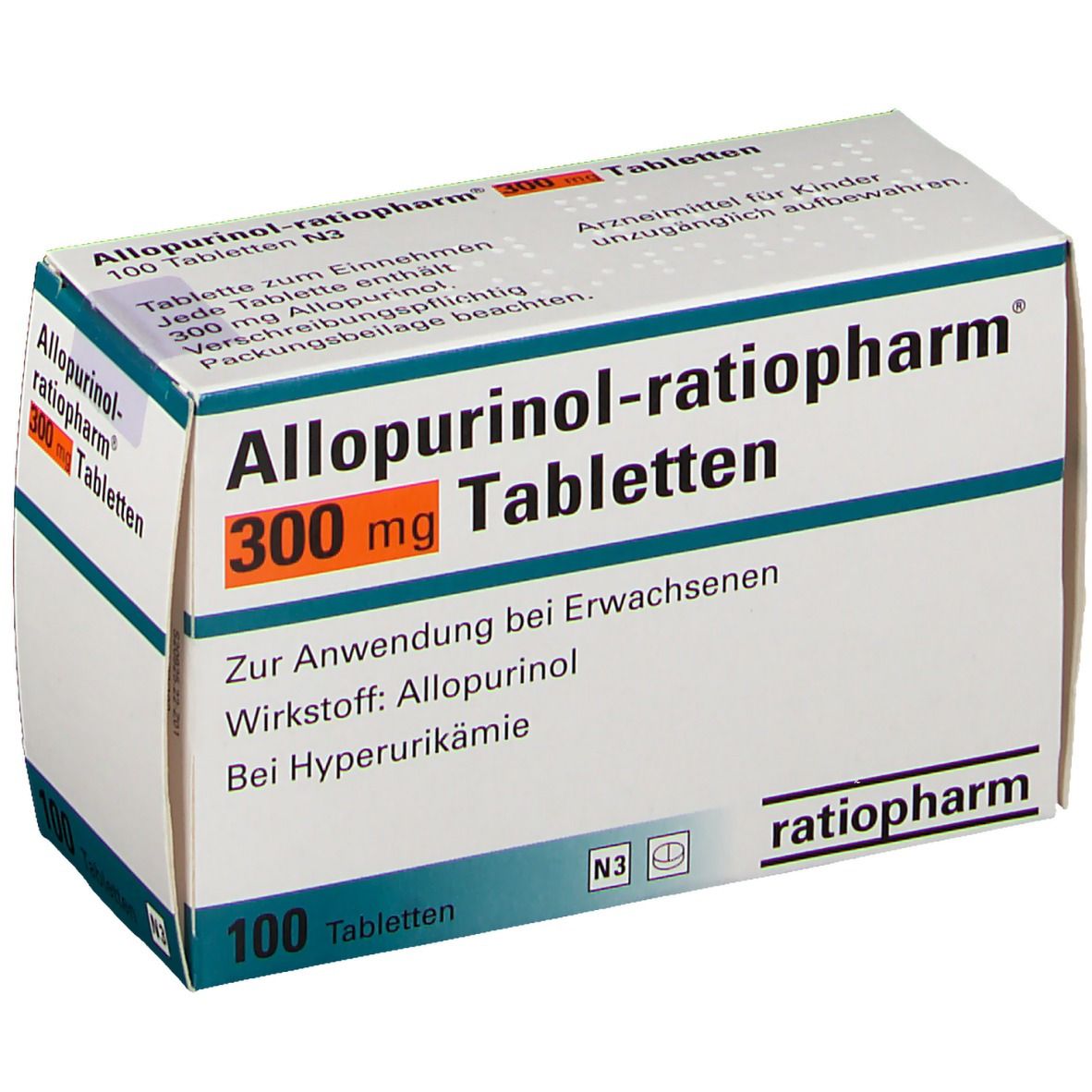1. Colchicine
Colchicine is an anti-inflammatory medication commonly used to treat gout. It works by reducing inflammation and pain during acute gout attacks. This drug is not a long-term solution but is effective at providing relief during flare-ups. Colchicine may be prescribed as an oral tablet or capsule.
Colchicine works by inhibiting the migration of white blood cells to the inflamed area, reducing the inflammatory response and alleviating pain. It is most effective when taken at the first sign of a gout attack.
Side effects of colchicine can include diarrhea, nausea, and abdominal discomfort. It’s important to follow your healthcare provider’s instructions for dosing, as excessive use can lead to toxicity.
2. Allopurinol
Allopurinol is a medication used for long-term gout management. It works by lowering the levels of uric acid in the blood, which is essential in preventing gout attacks. Gout is often triggered by the crystallization of excess uric acid in the joints.
Allopurinol is typically taken in the form of oral tablets. It inhibits the enzyme xanthine oxidase, which is involved in the production of uric acid. By reducing uric acid production, allopurinol helps to prevent gout flares.
Side effects of allopurinol can include skin rashes and, in rare cases, more severe allergic reactions. It’s crucial to use this medication as prescribed by your healthcare provider and to monitor uric acid levels regularly.
Allopurinol – Uses, Side Effects, Indications, and Usage Notes
3. Febuxostat
Febuxostat is another medication used to lower uric acid levels in the blood and prevent gout attacks. It is often prescribed as an oral tablet. Like allopurinol, febuxostat inhibits xanthine oxidase, reducing the production of uric acid.
Febuxostat is effective for long-term gout management and can be used when allopurinol is not well-tolerated or effective. It helps to prevent the formation of uric acid crystals in the joints.
Side effects of febuxostat can include liver problems and cardiovascular issues. Regular monitoring by a healthcare provider is important when using this medication.
4. Probenecid
Probenecid is a medication that works by increasing the excretion of uric acid from the body. It is often used to prevent gout attacks in individuals who have difficulty excreting uric acid effectively. Probenecid is available in oral tablet form.
This medication helps the kidneys remove excess uric acid from the body, thereby reducing the risk of uric acid crystallization in the joints. It’s commonly used in combination with other gout medications.
Side effects of probenecid may include kidney stones and gastrointestinal issues. Your healthcare provider will monitor your uric acid levels while on probenecid.
5. Indomethacin
Indomethacin is a nonsteroidal anti-inflammatory drug (NSAID) often prescribed to relieve pain and inflammation during gout attacks. It’s available in oral capsule or tablet form. Indomethacin helps reduce swelling and discomfort associated with gout flare-ups.
This NSAID works by inhibiting the production of prostaglandins, which are responsible for pain and inflammation. It provides relief from the acute symptoms of gout.
Side effects of indomethacin can include gastrointestinal irritation and, in rare cases, more severe reactions. It’s essential to take this medication as directed by your healthcare provider.
6. Naproxen
Naproxen is another NSAID commonly used to manage pain and inflammation during gout attacks. It is available in various forms, including oral tablets and liquid formulations.
Naproxen works by reducing the production of prostaglandins, which are involved in the inflammatory response. This helps alleviate pain and swelling associated with gout flare-ups.
Side effects of naproxen can include gastrointestinal problems, dizziness, and headache. Always follow your healthcare provider’s instructions for proper dosing.
7. Prednisone
Prednisone is a corticosteroid medication that is used to quickly reduce inflammation and pain during severe gout attacks. It is often prescribed in oral tablet form.
Prednisone works by suppressing the immune system’s inflammatory response. It provides rapid relief from the symptoms of an acute gout episode.
Side effects of prednisone can include increased appetite, weight gain, and mood changes. It’s typically used for short periods during gout flares under the guidance of a healthcare provider.
8. Celecoxib
Celecoxib is a nonsteroidal anti-inflammatory drug (NSAID) used to manage pain and inflammation in gout patients. It is available in oral capsule form.
This NSAID specifically targets the enzyme COX-2, reducing pain and inflammation without affecting COX-1, which is responsible for protecting the stomach lining. This can make it a suitable option for individuals with a history of gastrointestinal problems.
Side effects of celecoxib can include stomach upset and an increased risk of cardiovascular events. It’s essential to take this medication as prescribed by your healthcare provider.
9. Sulfinpyrazone
Sulfinpyrazone is a medication that, like probenecid, increases the excretion of uric acid from the body. It is available in oral tablet form.
Sulfinpyrazone helps the kidneys remove excess uric acid from the bloodstream, reducing the risk of uric acid crystal formation in the joints. It is often used in combination with other gout medications.
Side effects of sulfinpyrazone may include gastrointestinal issues and kidney stones. Regular monitoring of uric acid levels is important when using this medication.
10. Pegloticase
Pegloticase is a specialized treatment reserved for severe and treatment-resistant gout. It is an enzyme replacement therapy administered through intravenous infusion.
Pegloticase works by breaking down uric acid in the body, making it easier to eliminate. It is typically used when other treatments have not been effective.
Side effects of pegloticase can include infusion reactions and an increased risk of gout flares initially. This medication is typically administered in a clinical setting under the supervision of a healthcare provider.
Please note that the choice of medication and its specific usage should always be determined by a healthcare professional based on your individual needs and medical history.







